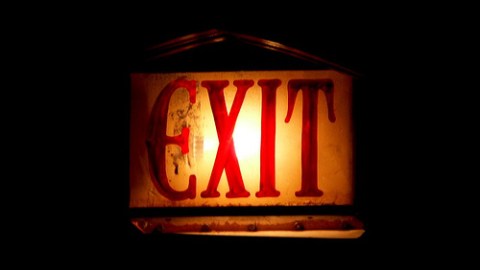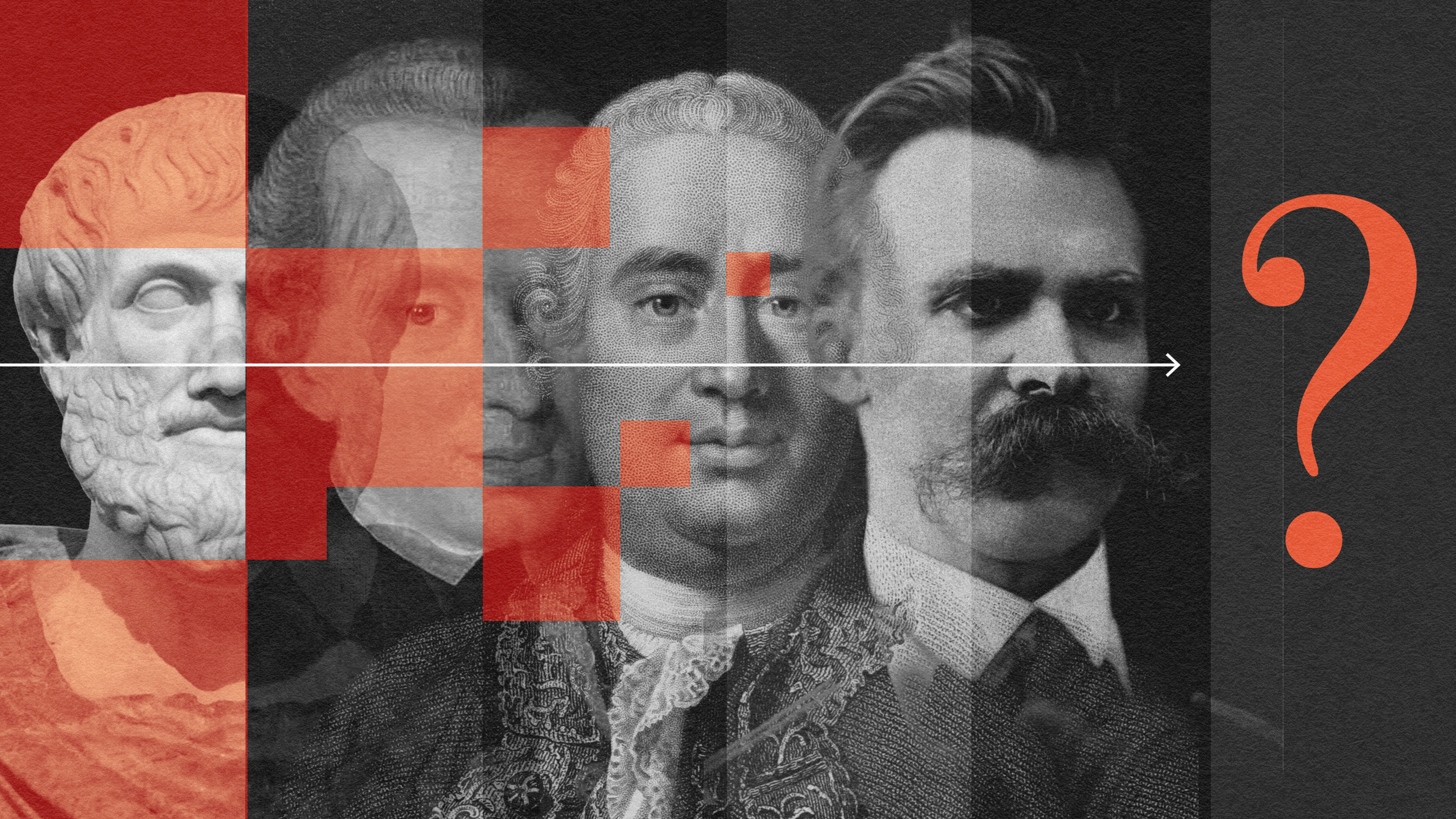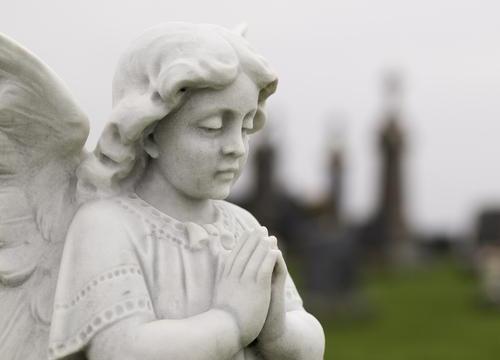An Ex-Mormon Story

Editor’s Note: After a holiday that’s all about gratitude, it seemed appropriate to post this. Please welcome Jessa Jackson as she tells the story of how she went from Mormonism to atheism. We’re thankful to have you, Jessa! —Adam Lee
One thing I remember hearing repeatedly claimed about ex-Mormons is that they “never really knew the truth.” The assumption being that if they knew the truth they never would have left. I want to be absolutely clear that I believed. My mother’s family was Mormon going back seven generations to a woman named Hannah Adams who moved from England to Utah for a polygamous marriage. They had lived in Utah ever since. My father’s family had Mormon history although his parents and siblings are inactive. I was born in Utah and though we moved frequently, I spent the majority of my childhood there. I went to church, and not just on Sunday, but all the weekday activities too. Our family consistently held Family Home Evening. When high school came, we were living in Texas and I enrolled in early morning (5:30 AM) seminary. I completed all four years of seminary and graduated. I applied and was accepted to Brigham Young University in Provo, Utah. I wasn’t happy in Provo and left after one year for Arizona, where I had lived for one year when I was younger and had good memories and friends. I continued and eventually graduated college there, attending LDS Institute classes all the way through. My father is
One thing I remember hearing repeatedly claimed about ex-Mormons is that they “never really knew the truth.” The assumption being that if they knew the truth they never would have left. I want to be absolutely clear that I believed. My mother’s family was Mormon going back seven generations to a woman named Hannah Adams who moved from England to Utah for a polygamous marriage. They had lived in Utah ever since. My father’s family had Mormon history although his parents and siblings are inactive. I was born in Utah and though we moved frequently, I spent the majority of my childhood there. I went to church, and not just on Sunday, but all the weekday activities too. Our family consistently held Family Home Evening. When high school came, we were living in Texas and I enrolled in early morning (5:30 AM) seminary. I completed all four years of seminary and graduated. I applied and was accepted to Brigham Young University in Provo, Utah. I wasn’t happy in Provo and left after one year for Arizona, where I had lived for one year when I was younger and had good memories and friends. I continued and eventually graduated college there, attending LDS Institute classes all the way through. My father is currently a Mormon bishop. I knew the church was true. What other option was there?
The first step toward deconversion for me happened when I read Ishmael by Daniel Quinn during my senior year of high school. This book was an introduction to critical thinking at a level my religious upbringing had never prepared me to believe existed. The book is an exhortation to question everything, especially the cultural beliefs that are so deeply rooted we don’t even realize we have them. Although it didn’t lead me to question my religion immediately,
The first step toward deconversion for me happened when I read Ishmael by Daniel Quinn during my senior year of high school. This book was an introduction to critical thinking at a level my religious upbringing had never prepared me to believe existed. The book is an exhortation to question everything, especially the cultural beliefs that are so deeply rooted we don’t even realize we have them. Although it didn’t lead me to question my religion immediately, I don’t believe any of the subsequent realizations would have been possible without it.
Five years later I was married, had an almost two year old daughter and was 38 weeks pregnant with my second child. It was not a good time of my life. I was having a difficult pregnancy and could barely manage to get out of bed. All my family lived out of state and I really had no one
Five years later I was married, had an almost two year old daughter and was 38 weeks pregnant with my second child. It was not a good time of my life. I was having a difficult pregnancy and could barely manage to get out of bed. All my family lived out of state and I really had no one to help me out. For those and other reasons, I was extremely depressed at the time.
At this point, my mother and husband generally checked in on me by phone several times a day to see if I was in labor and/or freaking out about something. This was a pretty extreme source of guilt for me, as a good Mormon wife I felt I should have been able to bear these burdens better. One day in particular I was having a very hard time. My toddler was being difficult and no one called. I didn’t want to call anyone because I felt so badly about how much they worried about me, so I just waited and hoped someone would call me (gotta love the years of mental conditioning that went into that logic). As the day went on and my toddler threw a tantrum instead of taking her afternoon nap, I got even more depressed.
I started to pray. I felt very alone that day and told Jesus I needed someone to call or stop by and let me know they loved me. Over the next few hours I simplified my request to just some sort of contact, even a telemarketer calling, anything to let me know I wasn’t alone. I was as upset as I’ve ever been. I could not figure out why such a small thing as inspiring anyone to contact me in any way would be beyond God.
Unless he wasn’t real.
It happened that fast. I had this sudden realization that not only my current unanswered prayer but everything made more sense if God wasn’t really there. The thought came out of nowhere and made me just freeze, out of confusion as much as anything else. What I felt next surprised me too. I felt completely calm, for the first time in months. For some reason, the realization that there was no one who should care or who had the ability to make everything better made it okay that everything wasn’t okay. About 20 minutes later my mother called to check on me and commented on how I sounded better than I had in a long time.
Well, that was the end of being Mormon. Some of the fears of hell (especially since Mormons specifically mark those who deny what they knew to be true for damnation) and such still lingered (it took me two years to work up the nerve to have my name removed from the church membership lists). But that didn’t mean I took a single step from Mormon to atheist. The first thing I did was research the holes in Mormon theology and history. I wanted my disbelief to be based on something more solid than my faith. I’d always been vaguely aware of these problems but hesitant to question them too much. Every time I had felt myself doubting or becoming apathetic about my faith, I had always thrown myself back at it even harder. Studying, debating and researching without asking any of the right questions. Always asking why and how without ever even wondering if. I now felt like I had spent years pulling on a door with a giant “push” sign on it.
At this point I found the website of Richard Packham. I was so relieved to find a deconversion story from someone who I was not only related to (he is something along the lines of my second cousin twice removed), but who had such a similar experience of a split second change from absolute belief to absolute disbelief. His writing helped me move very solidly away from the Mormon church.
I began investigating eastern and nature based religions. My experience with these was so limited that I was not willing to dismiss them immediately. I was especially attracted to practices that centered on the sacredness of nature without any reference to diety. This was a great place for me to be because it allowed me to examine the superstitions I still held individually and discard them one at a time. Although I gave up God in an instant, it took me much longer to release the last pieces of a mystical worldview.
Throughout this time I had a very difficult time discussing religion with friends and family. Some of this was because of hostility that I had walked away, but a large part of it was also that I completely lacked the ability to defend the positions I was slowly coming to. I knew I was offended by the Bible, but couldn’t make a good case for why some of the things in it were evil even if God commanded them. Or why I found the Bible to be a collection of stories from one set of tribal people rather than the true word of God. I just didn’t yet have a solid foundation to start from, no sources to quote and no place to turn for answers to questions I hadn’t asked yet.
During this time I found Ebon Musings through a link to “The Theist’s Guide to Converting Atheists.” The essays on this website gave me the information and resources I needed to be able to coherently explain and adequately defend all the ideas that had been so new to me so recently. I wrote the site’s author a note of thanks for all the hard work he had put into writing (which he posted to his site here). He also encouraged me to write a complete de-conversion story, which resulted in this account.
I’m still learning and reading, still developing my own thoughts and opinions on the new way I’ve come to see the world. I wanted to thank the three writers who helped me so much: Adam Lee, Richard Packham and Daniel Quinn. I also have to thank my wonderful, patient husband. He has not only put up with some crazy tirades against the religion he still believes in, but actively supported me on my journey. When other family members gave me a hard time or didn’t want to speak to me, he stayed with me. He defended me against church members who suggested we divorce because I left the church. He didn’t fight me about not wanting my children to attend services. He has been my best sounding board for new ideas. He’s not afraid to admit when I make points his religion can’t answer and he’s willing to let me down gently when my arguments are less than sound. I am amazed at his continuing ability to always be there for me during a journey he didn’t take with me.
Image credit: Sharat Ganapati, released under CC BY 2.0 license





